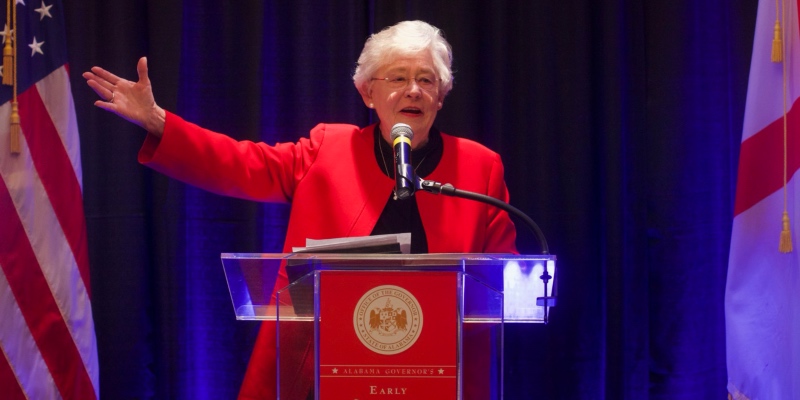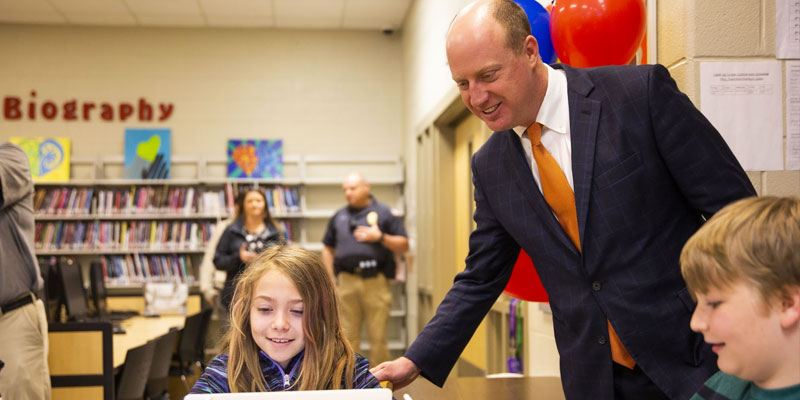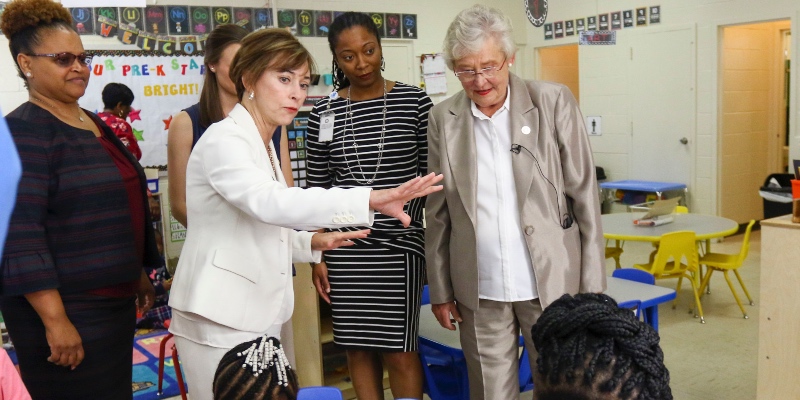MONTGOMERY — Governor Kay Ivey hosted the Early Childhood Education Leadership Forum Wednesday evening, where a confluence of hundreds of educators and policymakers heard from notable speakers, including the governor, Alabama Secretary of Early Childhood Education Jeana Ross and Dr. Katharine Stevens of the American Enterprise Institute, who delivered the keynote presentation.
One of the highlights of the night was the premiere of the long-form version of the Harvard Graduate School of Education’s documentary, entitled “Starting at Zero: Reimagining Education in America,” that names the Yellowhammer State’s First Class Pre-K program as one of the nation’s best.
Ivey, who was showcasing the first of the three prongs in her “Strong Start, Strong Finish” initiative, explained that 35 percent of Alabama third graders are proficient and reading at grade level. While funding for the First Class Pre-K program is at historic highs under her administration, with more children benefiting than ever before, Ivey stressed that she wanted to see continued progress moving forward in the early stage of education.
Because, as Stevens emphasized in her presentation, these early years are crucial to a child’s development.
While Stevens’ line of “[y]ou can’t go directly from the basement to the top floor” might best summarize her data-laden talk, the visual that stuck out was a metaphor she made — early childhood education, especially until a child is four or five, is like the initial stage of drying concrete. Right after the concrete is poured, it is wet and extremely impressionable, requiring little effort to leave a deep mark. However, as it begins to dry, it is harder to change, until it is totally dry and would require tools to chip away at.
This is like a child’s developmental process, according to Stevens and the various sources of research she presented.
“I’m not saying that if it is not done in the first three years, it’s too late,” Stevens added. “It’s never ‘too late’ in human development. But just like concrete – once that concrete has set in place it takes a great deal more skill and time and energy to change its form. It’s just much easier at the beginning than it is when it’s set into place later on.”
Stevens also outlined that while three and four-year-old pre-k programs are crucial, children need to be nurtured and developed at home starting at birth, saying “brains are built.”
“Early childhood education means human development, not just school,” Stevens said.
To conclude her presentation, Stevens made a compelling case for increased funding of this earliest stage of education, advising that the return on investment is highest, as it amplifies the respective impacts of k-12 and post-secondary education, as well.
Just wrapped at @GovernorKayIvey’s Early Childhood Education Leadership Forum. Huge crowd – standing room only. pic.twitter.com/zdgN9C1HnI
— Sean Ross (@sean_yhn) November 15, 2018
Watch the short-form documentary that highlights Alabama’s First Class Pre-K program below:
Sean Ross is a staff writer for Yellowhammer News. You can follow him on Twitter @sean_yhn













